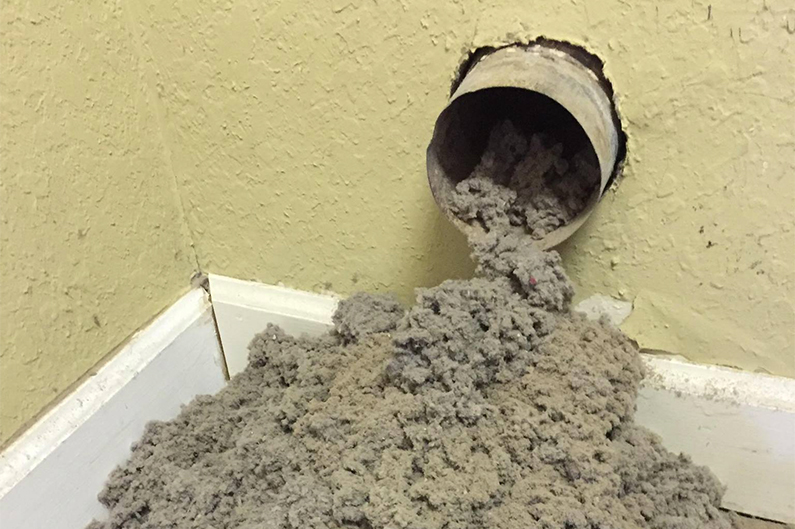Regular dryer vent maintenance is important for safety, efficiency and preventing fires. Here are some tips for dryer vent cleaning and care:

• Clean the lint trap before every load
The lint trap collects lint and debris between tumble drying cycles. Empty the lint trap and clean the filter screen before starting a new load to allow for proper airflow. A clogged lint trap reduces efficiency and can lead to overheating.
• Vacuum vents and hoses regularly
Use the hose attachment on your vacuum cleaner to remove lint buildup on dryer vents, hoses and exhaust sleeves. Do this before and after drying cycles when clothes are still warm for easier cleaning. Clogged vents reduce airflow and increase drying time/costs.
• Hire a professional to clean vents
For security and peace of mind, hire a professional chimney sweep or HVAC technician to perform in-depth dryer vent cleaning and inspections. They have proper equipment to thoroughly clean vents as well as check for signs of damage, corrosion or fire hazards. It’s best to have vents cleaned once a year or if there are any issues.
• Remove lint from lint trap screens
The mesh screens covering some lint traps can develop small holes where lint can escape over time. Remove any lint buildup along the edges or underside of screens to allow lint to pass through freely. Replace screens if there are tears or tears larger than 1/4 inch in diameter.
• Inspect seals and piping
The technician cleaning your vents will check that the exhaust hose is properly sealed, ductwork is securely fastened and there are no damaged or corroded areas. Cracks allow lint to escape, reducing airflow and increasing fire risks. Damaged components should be replaced immediately.
• Consider fire-rated lint traps and exhaust pipes
For the highest fire safety, install UL-listed fire-rated lint traps and dryer exhaust ducts that are specifically designed to prevent heated air/lint escape. These components help contain any potential fires within the dryer to avoid spreading. They may cost slightly more but provide valuable peace of mind.
• Avoid duct extensions and crushed/kinked ducts
Dryer duct extensions or flex hoses increase restrictions and reduce airflow efficiency and safety. They also provide more areas for lint accumulation and potential blockages/fires. Insulated rigid metal ducts are the best option for direct routing of exhaust outdoors. Crushed, flattened or kinked ducts also inhibit airflow and should be fixed or replaced.

